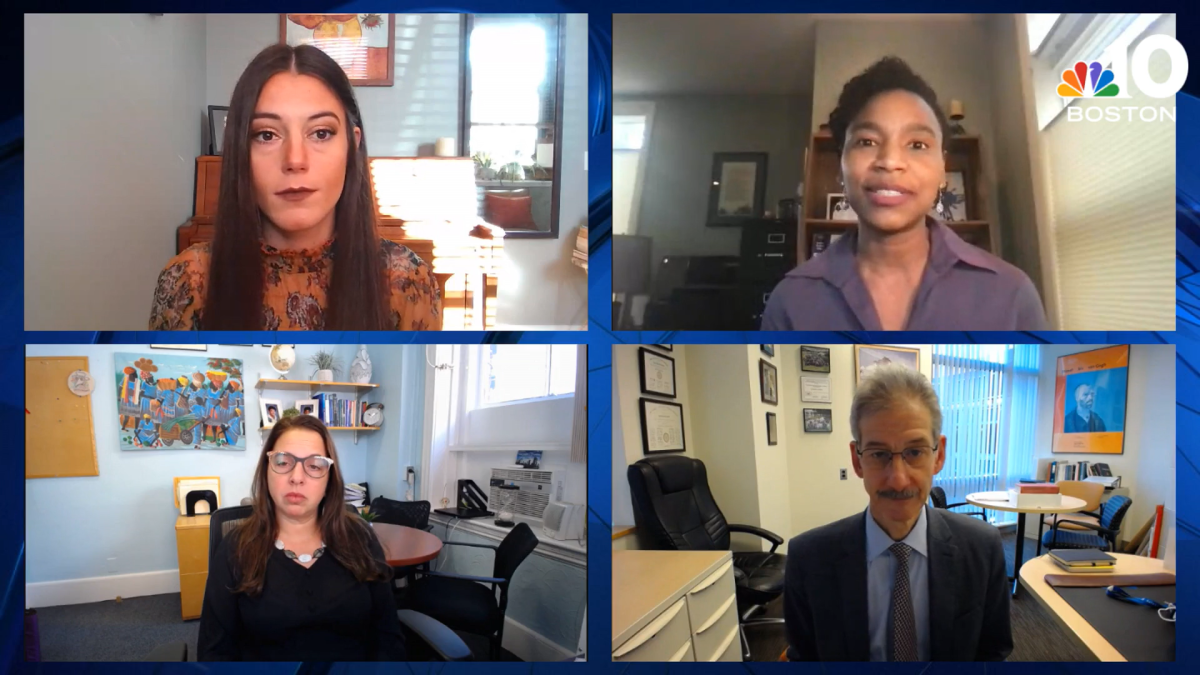
Top Boston doctors talk about new data on COVID hospitalizations, when we’ll reach endemic status and a study that shows a fourth vaccine dose doesn’t stop omicron on NBC10 Boston’s weekly “COVID Q&A” series.
The latest COVID wastewater data shows levels in the Boston area are nearly back to where they were before the start of the omicron surge.
New data unveiled this week showed the levels dropping to where they were in mid to late December before cases started to spike dramatically. That's down substantially from peak levels and is another sign that the surge could be nearing an end.
The Massachusetts Water Resources Authority's tracking system, run by Cambridge-based Biobot, works by analyzing bits of genetic material in the Boston area's sewers to indicate how much of the virus is circulating in the community.
Get Boston local news, weather forecasts, lifestyle and entertainment stories to your inbox. Sign up for NBC Boston’s newsletters.
As of Tuesday, COVID levels were averaging about 2,000 RNA copies of COVID per milliliter, down from around 6,000 last week and from a peak near 10,000 in early January.
This appears to coincide with the latest case totals from the state, which have been on the decline.
There were 14,647 new COVID cases reported Wednesday, and the state's seven-day average testing positivity and hospitalizations continue to trend down. But Wednesday's data also included 199 new deaths, a number that included totals from Saturday through Tuesday.
The seven-day average of positive tests was at 16.70%, down from the most recent high of just over 23% on Jan. 5.
Massachusetts Gov. Charlie Baker and several top Boston doctors said earlier this week they think the omicron surge might be winding down.
"The current state of play on the wastewater treatment data, generally the broader collection of data is it's down probably somewhere between 65 and 70% of where it was at the peak a couple weeks ago, which is exactly the same trajectory that people saw with omicron in the U.K., South Africa and in other parts of the U.S.," Baker said. "It's a straight up and a straight down. Several people have written about this and it appears to be good news."
During NBC10 Boston's weekly "COVID Q&A" series Tuesday, three Boston doctors agreed that we could be on the downslope of the omicron curve. Even so, they said we could be in for a rough few weeks before things start returning to normal.
"It really suggests that we still have many infections ahead of us even though we are likely on the downslope here in Massachusetts," said Dr. Shira Doron of Tufts Medical Center.
Proponents of wastewater COVID detection have argued that it helps give a fuller sense of the virus' spread in a community than state data, which doesn't include at-home rapid tests or people with COVID who don't take tests at all.
The data for Boston is collected from the Massachusetts Water Resources Authority's Deer Island wastewater treatment plant and analyzed by Cambridge-based Biobot Analytics three to seven times a week.
Forty-three communities from eastern Massachusetts have their water treated at the plant, including Boston, Cambridge, Framingham and Quincy. The data cannot be linked to specific cities, towns or neighborhoods.